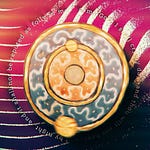I have not sat with the council of vanity: neither will I go in with the doers of unjust things. (Psalm 25:4 DR)
To live within this world while not sharing in its impieties and wickedness is where the rubber meets the road, as it were, in the practice of one’s faith. The temptation to love the things of this world or to make one’s home here is ever-present, perhaps more so now than ever before as the comforts the average person can enjoy surpass those of the kings of the past. This ease of life can grease the skids for compromise with evil.
The Psalmist in his exile from his people and from the tabernacle of God was no doubt tempted to abandon his people and his faith, as they had seemingly abandoned him. It may be difficult to understand with such a remove of time and culture, but the identification of his people and land and faith ran deep, so that to be in exile was perhaps a fate worse than death.
Even worse, as David was dwelling among the Philistines—blood enemies of his people whom he himself had distinguished himself against—he was daily subjected to their heathen ways and gods, their continual blasphemies against the One True God. His conscience was no doubt troubled and oppressed to have to dwell amongst such impiety, especially as he was cut off from worshiping God in the tabernacle. It would have perhaps been easy for him to reject his former life and those who had rejected him, but instead he maintains his integrity, preferring the things of heaven to those of this world:
I have not chosen to give my heart to them who endeavour to provide, what is impossible, how they may be blessed in the enjoyment of things transitory. (St. Augustine, Expositions on the Psalms, 25, 4.)
After having declared his innocence and asking God to prove his purity of conscience, he now provides in the next few passages an inner monologue, an inventory of sorts of his interior motivations and thoughts which are to reject evil and pursue virtue.
Here he begins with what he has rejected, which is to sit with the council of vanity. The Vulgate has concilio vanitatis, whereas St. Jerome’s Hebrew translation has viris vanitatis—men of vanity. Concilio is how the Vulgate translates the Septuagint’s συνεδρίου, literally a “sitting together.” The Hebrew thus focuses more upon the persons involved (i.e., men of vanity), whereas the Vulgate intensifies it by placing the focus on the purpose of the assembly; that is, I have not “sat” with their “sitting together.” In other words, he has not engaged in any way with their purposes or intentions.
Vanitatis is used for the Greek ματαιότητος, which is literally futility, emptiness or vanity. The English “vanity” is derived through Old French from the Latin and originally meant this futility or emptiness, but now tends to mean an overwrought opinion of oneself, although it retains its original meaning when we say something was done “in vain.”
This council of “vanity” likely refers to the pagan assemblies for worship of their deities, as the Scriptures elsewhere describe the pagan gods as “vain:”
He calls the assembly of the idolaters the “council of vanity,” for what can be more vain? What, more vain than idols, false images? As the apostle says, “We know that an idol is nothing in the world,” 1 Cor. 7. Throughout the Scriptures idols are called vain, or vanities, Deut. 32, “They have provoked me with that which was no God and have angered me with their vanities;” and 1 Kings 12, “And turned not aside after vain things, which shall never profit you, nor deliver you, because they are vain.” See also 3 Kings 16; Jeremias 2, and various other passages. (St. Robert Bellarmine, A Commentary on the Book of the Psalms, 25, 4-5.)
In the previous passage he spoke of how the mercy of God was “before his eyes” and he was “well-pleased” with God’s truth, which demonstrates that this formed the foundation for his ability to reject the assemblies of the pagans and to not compromise with the world even in the midst of such trying circumstances. It wasn’t a sheer act of the will on his part but rather preceded by God’s mercy. His love of God’s law (cf. Psalm 118) was the foundation for his fortitude, and thus he could live as an exile even among his enemies. His conscience—though no doubt troubled at the idolatry around him—was nevertheless unsullied by the miasma of sin which surrounded him. Thus it is not only a rejection of vice but also a pursuit of virtue which allowed the Psalmist to maintain his innocence and integrity:
Now, to such a degree was I mindful of your service, he is saying, that even when in the presence of impious and lawless people I shunned their assemblies and their harmful gatherings. By these expressions he suggests life among the foreigners with whom he was forced to dwell on account of flight, without being able to bring himself to share impiety or lawlessness with them. (Theodoret of Cyrus, Commentary on Psalm 25.3, The Fathers of the Church, Vol. 101.)
The second half of this passage expands upon the first in a natural progression, as the “sitting” with this council of vanity implies an association with their designs and plans, an intention to do what they do:
“I have not sat in the council of vanity;” he does not lend assent to the discussions of the wicked by any association with their plans. It can happen by some chance that a holy man attends a council of the wicked at which unfitting or empty proposals are made, yet while he has cognizance of these he does not associate himself with them, nor linger with any delight in them, but instead either argues against an evil proposal or quits it. So whereas earlier he said that he had not sat with the wicked, now he claims that he has not gone in with those who are very wicked; first he avoided their discussions, and later he forsook their actions. Going into crime means beginning some reckless action, for the “going in” signifies the commencement of the activity which the holy man claims is alien to his moral sense. (Cassiodorus, Explanations of the Psalms, 26.4., ACCS.)
St. Augustine speaks of how the Psalmist will not have his conscience “hid” with the workers of iniquity, meaning that he does not want to even have it suspected that he consents to their actions. This follows St. Paul’s admonition:
But fornication, and all uncleanness, or covetousness, let it not so much as be named among you, as becometh saints: Or obscenity, or foolish talking, or scurrility, which is to no purpose; but rather giving of thanks. (Ephesians 5:3-4 DR)
Interestingly, St. Paul names these other sins as being “to no purpose,” which is synonymous with the “vanity” of idolatry here in this Psalm, demonstrating that all vice is an emptiness of the soul from which the sincere conscience must stand aloof from.
The natural progression of most sin, after all, is that we are tempted by means of being lulled into a desire that seems harmless enough, and may even be a good in and of itself but is disordered by some means. Perhaps comfort or sloth lead to indulgence, and this vanity then gives birth to greater desire and further temptation, as St. James describes:
But every man is tempted by his own concupiscence, being drawn away and allured. Then when concupiscence hath conceived, it bringeth forth sin. But sin, when it is completed, begetteth death. (James 1:14-15 DR)
To “sit” with the council of vanity is thus an apt metaphor, for “sitting” implies a sort of complacency, a slothfulness of soul that is not diligent to avoid vice. There is a sense in which we are less prepared to action when we are sitting than when we are standing; that is, our battle-readiness is compromised. Near occasions of sin are always prompted by this sort of slothfulness of spirit, and this sitting then more easily provokes further acquiescence, which is why the Psalmist has refused to even sit with the council of vanity. Similarly, we must always be on guard, refusing to allow temptation to gain a foothold in our souls so that we will not then go in with the “doers of unjust things.”
The elder Tobias—both when a boy and when older—modeled this admirably in his life, for even while in captivity he not only refused to “sit with the council of vanity,” but pursued virtue in the face of the idolatrous pagans:
When he was made captive in the days of Salmanasar king of the Assyrians, even in his captivity, forsook not the way of truth, but every day gave all he could get to his brethren his fellow captives, that were of his kindred. And when he was younger than any of the tribe of Nephtali, yet did he no childish thing in his work. Moreover when all went to the golden calves which Jeroboam king of Israel had made, he alone fled the company of all, and went to Jerusalem to the temple of the Lord, and there adored the Lord God of Israel, offering faithfully all his firstfruits, and his tithes, so that in the third year he gave all his tithes to the proselytes, and strangers. These and such like things did he observe when but a boy according to the law of God. (Tobit 1:2-8 DR)
I found this image of a cat, and decided it needed to be punished in some manner for the vanity of all cats. I isolated it in Photoshop and then found this hand image and did the same.
I precomped each and then did the animation. For the background I merely drew two rectangles and animated their rotations, and then used the Repeater to create the pattern.
Enjoy.
I have not sat with the council of vanity: neither will I go in with the doers of unjust things.
(Psalm 25:4 DR)
View a higher quality version of this gif here:










